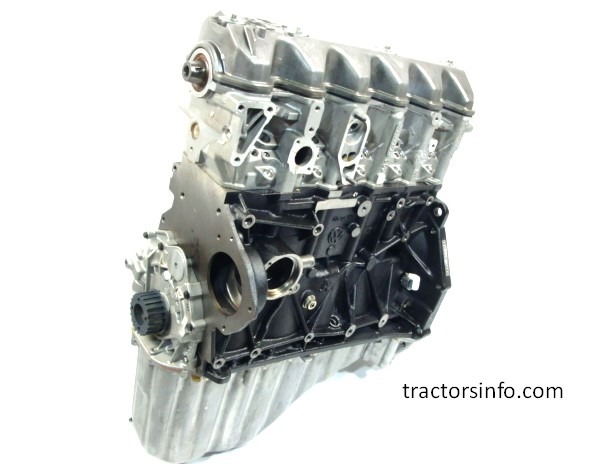VW/Audi 2.5 R5 TDI Engine Specs, Problems & Reliability
VW/Audi 2.5 R5 TDI Engine – Here in this post, I have taken all the details about VW/Audi 2.5 R5 TDI Engine from the (official site) including VW/Audi 2.5 R5 TDI Engine specs, Weight, Price & Dimension.
We believe to provide accurate details to our readers and we prefer only official sources for information about VW/Audi 2.5 R5 TDI Engine.
All the details which you want to know about VW/Audi 2.5 R5 TDI Engine you can find in this article which is updated.
VW/Audi 2.5 R5 TDI Engine
The engine used is the 2.5-litre, 5-cylinder turbo diesel inline engine, which has a pump-injection system. The engine’s development began in 1989.
Audi created and developed the machine, which became production’s initial Turbocharged Direct Injection engine. The main goal of the action was to incorporate the engine into different types.
Cylinder block constructed from grey cast iron. It is equipped with six main bearings and a crankshaft made of forged steel. The aluminium pistons are bowl-shaped.
On top of the block is an aluminium cylinder head with ten valves (two valves for each cylinder). There is just an engine camshaft (SOHC) that is driven by a timing belt.
The valvetrain comes with hydraulic tappets/lifters allowing automated valve clearance compensation.

VW/Audi 2.5 R5 TDI Engine Specs
|
Manufacturer
|
Audi
|
| Production years |
1989-2004
|
| Cylinder block material |
Cast Iron
|
| Cylinder head material |
Aluminum
|
| Fuel type |
Diesel
|
| Fuel system |
Bosch VP37 pump, two-stage direct injection
|
| Configuration |
Inline
|
| Number of cylinders |
5
|
| Valves per cylinder |
2
|
| Valvetrain layout |
SOHC
|
| Bore, mm |
81.0 (3.19 in)
|
| Stroke, mm |
95.5 (3.76 in)
|
| Displacement, cc |
2,461 cc (150.2 cu in)
|
| Type of internal combustion engine |
Four-stroke, turbocharged
|
| Compression Ratio |
19:1
|
| Power, hp |
88-165 hp /3,500-4,000
|
VW/Audi 2.5 R5 TDI Engine Problems & Reliability
2.5 R5 2.5 R5 TDi engines are generally reliable and sturdy engines, provided that you follow the manufacturer’s schedule of service and you use oil of high quality to prolong your life of yours.
The chances of problems being averted are minimal so long as they are maintained and regularly maintained.
Carbon build-up within the head, especially around the valves, can reduce power or cause flat spots.
This is a common problem with direct injection engines but is something to look out for on every machine. We offer tips for removing carbon build-up.
A few users have encountered problems with flat spots or glitches following the application of mods, upgrades, or tuning.
However, this is usually due to something other than the engine’s design and should be addressed by our article on the causes of flat spots and issues after tuning that will assist you in finding the root of the problem.
Regular oil changes are essential for the 2.5 R5 TDi, especially when tuned. It will also increase the longevity and durability of the engine.
If you’d like to know more or get tips on tuning Your 2.5 R5 TDi engine, please join us on our help forum, where you can talk about adjusting options more in-depth in our meeting with fellow 2.5 R5 TDi owners.
It is also worth reading our independent tuning guides to understand each change’s advantages and disadvantages.
VW/Audi 2.5 R5 TDI Engine FAQs
Is the 2.5 TDI a good engine?
This 2.5 V6 TDI engine could be more flawless. It varies depending on the version. The engine’s power is 150 (AFB or the ANC) and 150 (AIM), 163 (BFC, BCZ, BDG), and 180 HP (AKE, BDH, BAU), and it delivers outstanding performance.
How many miles will a VW diesel engine last?
This 2.5 V6 TDI engine is not flawless. It varies depending on the version. The engine’s power is 150 (AFB or the ANC) and 150 (AIM), 163 (BFC, BCZ, BDG), and 180 HP (AKE, BDH, BAU), and it delivers outstanding performance.
What is a VW ALH engine?
Its 1.9L turbodiesel (ALH code) engine is about as straightforward as it is. It’s a belt-driven timing single-overhead-cam, eight-valve inline-four engine mounted sideways beneath the underhood.
Why do TDI engines last longer?
Diesel fuel is a distillate fuel that is mainly made from crude oil. This makes diesel engines have less wear on the cylinders than gasoline motors. Diesel fuel has characteristics of lubrication, which increase the motor’s lifespan.